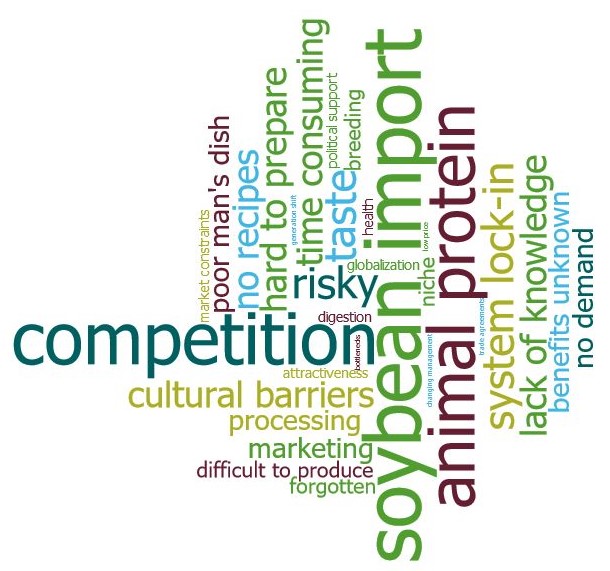- About TRUE
- Consortium
- James Hutton Institute
- Coventry University
- Stockbridge Technology Centre
- Scotland's Rural College
- Kenya Forestry Research Institute
- Catholic University of Portugal
- University of Hohenheim
- Agricultural University of Athens
- Institute for Food Studies & Agro industrial Development ApS
- Public Institution for the Development of the Međimurje County REDEA
- Bangor University
- Trinity College Dublin
- The Processors and Growers Research Organisation
- Jožef Stefan Institute
- IGV Institut für Getreideverarbeitung
- Environmental Social Science Research Group
- Agri Kulti Ltd.
- Alfred-Wegener-Institute, Helmholtz-Centre for Polar and Marine Research
- Slow Food Deutschland e.V.
- Arbikie Distilling Ltd.
- Teagasc - the Agriculture and Food Development Authority
- Herdade do Freixo do Meio
- Eurest
- Solintagro S.L.
- ISAB
- Consortium
- Work Packages
- Legume Innovation Network
- LIN - Workshops
- Blog: "Notes from the field"
- News & Events
- Publications & Resources
- Contact
Work package updates
Work package updates · 01. March 2021
ESSRG is leading the TRUE policy work package. In this blogpost the research behind the policy recommendations is explained. A Delphi process was carried out to explore future policy scenarios for legumes in Europe.
Work package updates · 02. October 2020
As part of a student project for WP3: Nutrition and product development at Universidade Católica Portuguesa, a children's cookbook with legume recipes was created by TRUE student assistant Eva Lingemann. The book can help to familiarize consumers with the diversity and child friendliness of legumes and legume dishes
Work package updates · 16. September 2020
Cooking together with legumes - in pandemic times only a digital opportunity, everyone in her and his own kitchen. Report about the Disco Soup event organised by Slow Food.
Work package updates · 08. September 2020
Bread and cereals have been the symbol of nutrition for the world's population for many centuries. This also applies to legumes like for example peas, beans or lentils. Thanks to the progressive development of technology, it is now possible to combine the best of both worlds by processing the legumes into flour and then working them into a dough, thus producing a tasty and qualitatively improved bread.
Work package updates · 02. August 2019
How to shift aquafeed's dependence on fish-based ingredients to a fish-free product that is based on legume protein, and create a more sustainable aquafeed with less environmental impact? AWI findings provide new insights.
Work package updates · 03. July 2019
In scope of TRUE´s Work Package 3 activities, the idea to develop a healthy snack based on lentil, a well-adapted legume grain produced in Spain, Germany and other European countries, and that offers great health benefits, was born. Given its nutritional attributes, and processing properties, we considered important to promote lentil consumption in Portugal.
Work package updates · 27. May 2019
Report from a workshop on a sustainability model to link the multiple dimensions (environment, economy, society) across five nodes (producer, processor, transport, retailer & consumer) of legume based value chains.
Work package updates · 20. May 2019
IGV gives impulses to visitors for protein pasta, which consists mainly of yellow pea flour.
Work package updates · 26. April 2019
With the different dietary alternatives based solely on plant protein and nutrients, it is important to gather information on seeds composition, allowing each person to tailor the elements of their diet according to their needs.
Work package updates · 12. March 2018
The development of sustainability indicators for assessment of legume-based systems in Europe should follow the conceptual model of information and knowledge through the legume quality chain. A suite of indicators covering environmental, economic and policy pillars, as well as their interactions (bearability, viability and equitability), should be developed for each node in the quality chain.

TRansition paths to sUstainable legume-based systems in Europe (TRUE) has received funding from the
European Union’s Horizon 2020 research and innovation programme under grant agreement No. 727973
Search content on this website by typing a keyword:















